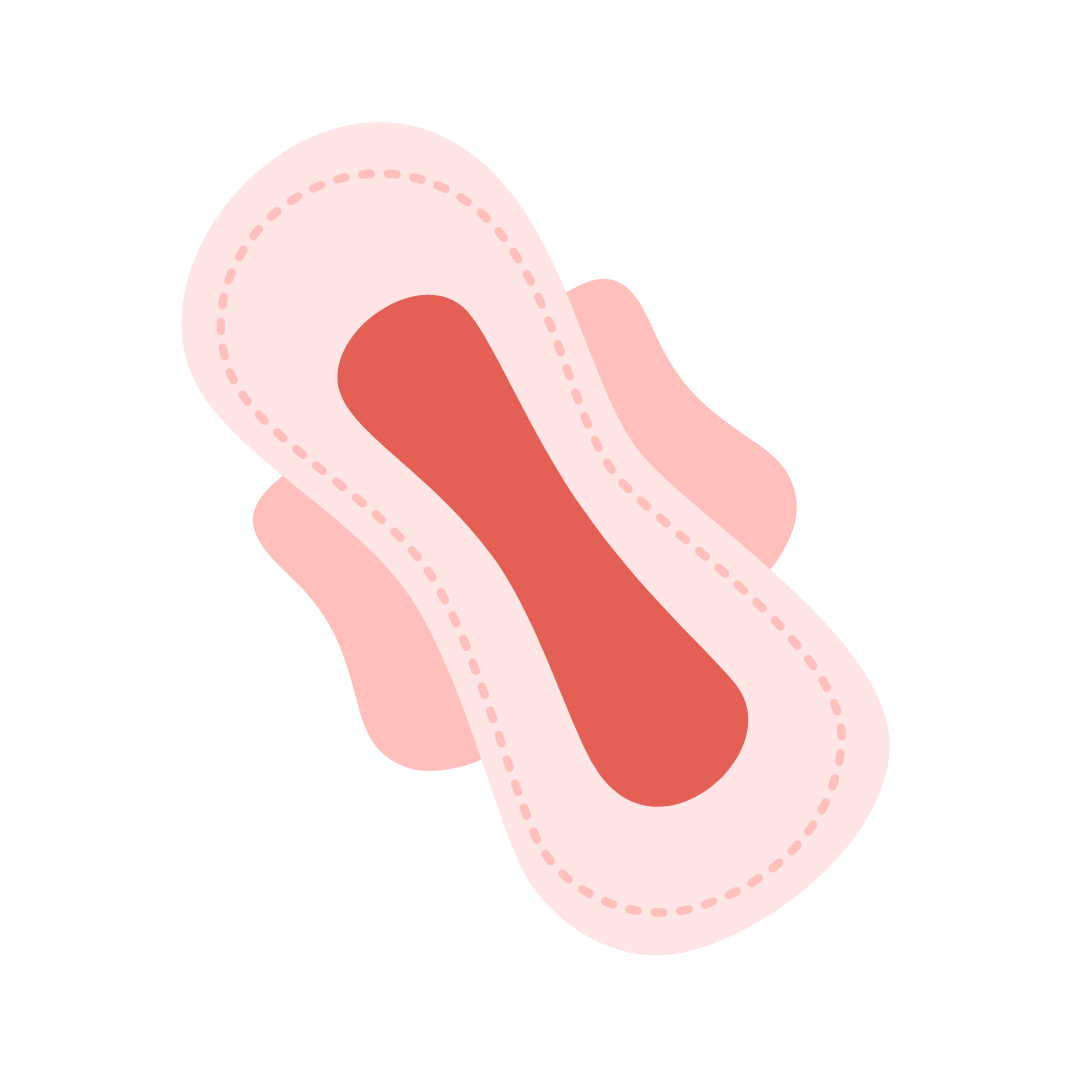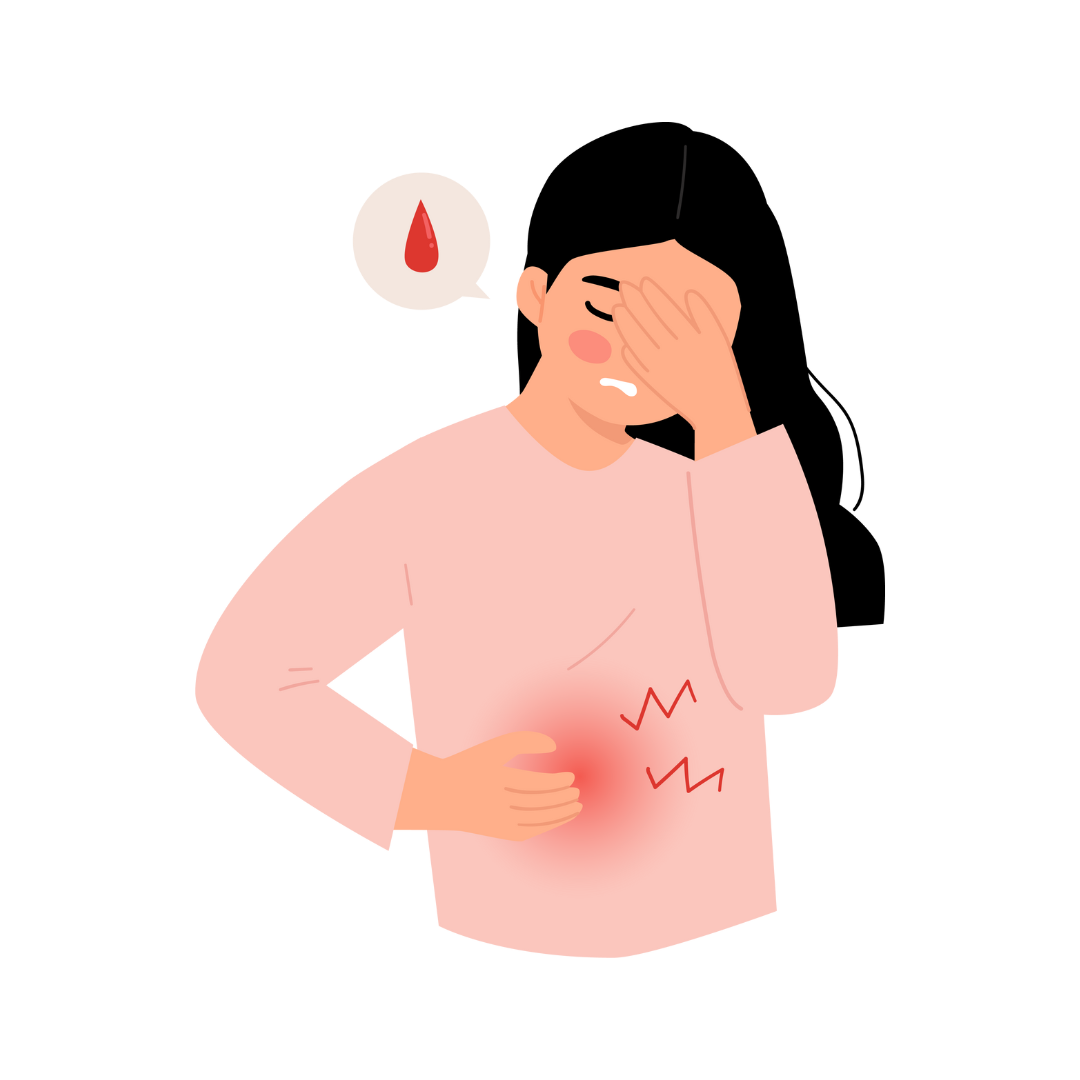Are Irregular Periods Affecting Your Life?
Get expert care for menstrual disorders from Dr. Amita Shah,
a trusted gynecologist in India.
Take control of your menstrual health today.

Understanding Types of Menstrual Disorders

Heavy Periods (Menorrhagia)
Long, heavy bleeding that disrupts daily life.

Irregular
Periods
Cycles shorter than 21 days or longer than 35 days.

Painful Periods (Dysmenorrhea)
Cramps and discomfort before or during your period.

Missed Periods (Amenorrhea)
When your periods stop unexpectedly.
Early diagnosis and treatment can help you manage these conditions comfortably. Many causes like hormone imbalances, fibroids, or lifestyle factors can be addressed effectively.
Common Causes of Menstrual Disorder
Hormonal Imbalances
Hormonal imbalances in estrogen, progesterone, thyroid, or pituitary function often disrupt menstrual cycles, leading to disorders like PCOS.
Stress and Lifestyle Factors
Stress, weight changes, and lifestyle factors like diet, exercise, or travel can affect menstrual regularity by altering hormone levels.
Structural Abnormalities
Uterine fibroids, polyps, adenomyosis, and scarring inside the uterus can cause heavy, irregular, or painful bleeding.
Pregnancy-Related Causes
Ectopic pregnancy, miscarriage, and pregnancy complications can cause menstrual irregularities and abnormal bleeding.
Medical Conditions
Endometriosis causes severe pain and irregular bleeding by growth of uterine lining tissue outside the uterus.
Medications and Contraceptives
Medications like birth control, IUDs, blood thinners, and some antidepressants can disrupt menstrual bleeding patterns.
How We Help You Treat Menstrual Disorders

Medical History
The provider asks about cycle patterns, pain, bleeding, history, health, medications, lifestyle, and sexual history. A menstrual diary helps track symptoms.

Physical Examination
A healthcare provider may perform a pelvic exam, Pap smear, and recto-vaginal exam to check reproductive health and detect abnormalities.

Blood Tests
Blood tests are used to check hormone levels (thyroid, FSH, estrogen, prolactin) and screen for anemia or bleeding disorders in cases of heavy bleeding.

Imaging Tests
Ultrasound (abdominal or transvaginal) detects fibroids, cysts, polyps, and structural issues, while sonohysterography uses saline for clearer imaging.
Dr. Amita Shah - Menstrual Disorder Specialist
30+ Years of Women's Health Excellence
Dr. Amita Shah brings unmatched experience as a Senior Consultant Obstetrician, Gynecologist, and Laparoscopic Surgeon. Currently serving as Chairman & HOD at Manipal Hospital Gurugram, she has transformed thousands of pregnancy journeys with her patient-first approach.
Professional Credentials:
- MBBS, MD – Obstetrics & Gynecology
- 30+ Years specialized experience
- Board Certified with Haryana Medical Council
- Chairman & HOD at Manipal Hospital Gurugram
Success Stories
Trustindex verifies that the original source of the review is Google. I got my laparoscopic treatment for Endometriosis issue. I am an old patient of Dr Amita shah for other PCOS treatment , that was also going good but recently I recognised with Endometriosis that explain by doctor clearly. Then me & my husband decide to get treatment on time. Today is my 8th after laparoscopic Endometriosis treatment & I am really very happy to get in touch in safe hands. Laparoscopy recovery is amazing. Dr Amita shah is really a polite doctor & gave clear explanation for treatment. I am so lucky & thankful to doctor.Posted onTrustindex verifies that the original source of the review is Google. My wife go through Total Laproscopic Hysterectomy for Adenomyosis. We came to doctor first time by Google. Dr. Amita shah is really polite doctor, she explain firstly then give time to understand each point then proceed next that is rare in doctors. Dr. Amita shah is v.v experience doctor in her laproscopic work. Her skill is showing perfectly. My surgery was so good. She didn't have any pain after surgery & her recovery is amazing. We didn't expect like this smooth treatment. Doctor's coordinator (Ashu) , her OT physician ( Manoj ) are really good to guide for everything that needs to understand for a patient after reach at Hospital. Dr. Amita shah is really good doctor. Doctor is GOD for us. We highly recommend Dr Amita shah for any Gynae issue. Doctor will give you true & best opinion. We thankful to doctor & her team.Posted onTrustindex verifies that the original source of the review is Google. My wife underwent laparoscopic hysterectomy for heavy bleeding. We came to Dr Shah after we came to know about her from another patient. My wife surgery was so good, she did not have any pain after surgery and her recovery was very fast. She was discharged within a day after surgery. On going home she was normally doing all work. We are really thankful for the excellent care she gave. She is a wonderful doctor and highly recommended for hysterectomy surgery.Posted onTrustindex verifies that the original source of the review is Google. My wife got treatment from Dr. Amita shah . Doctor did Hysteroscopy polypectomy . Dr. Amita shah is v.v nice & polite to talk with her patient. Her calm nature is really helpful to understand each point of view. She explain everything before treatment her patients. My wife & me are really thankful to doctor for treatment my wife . Dr. Amita shah & her team take care of their patient even after any treatment. Thanks to all of themPosted onTrustindex verifies that the original source of the review is Google. Dr. Amita shah is v.v experience doctor in her laproscopy. My wife go through a laproscopy Hysterectomy. Today , we visit to doctor for review. Her explanation is v.v smooth & satisfied. My wife is soo lucky to meet her & more confident. Today , she is very happy & all of us are v.v thankful to Dr. Amita shah . Doctor & her team is really easy approachable. They all are polite to talk.Posted onTrustindex verifies that the original source of the review is Google. We recently underwent laparoscopic myomectomy surgery under the care of Dr. Amita Shah, and I must say we had an excellent experience. From the very first consultation, Dr. Shah made us feel comfortable, informed, and confident about the procedure. She explained everything in detail and patiently answered all our questions. The surgery went smoothly, and my wife recovered much faster than we had expected. Her expertise in laparoscopic techniques and the way she handled everything with such calmness and professionalism is truly commendable. The post-operative care was also very good — she was always available for guidance and support whenever needed. We are extremely grateful for her compassionate approach and dedication towards her patients. Highly recommend Dr. Amita Shah for anyone looking for safe and effective fibroid treatment or laparoscopic.Posted onTrustindex verifies that the original source of the review is Google. My experience with Dr Amita shah become unexpected. She did my Total Laproscopic hysterectomy . I met her firstly & really feel positive . Dr. Amita shah is v.v experience doctor in her Laproscopic work. I am v.v thankful to Dr. Amita shah & her all team members ( Manoj, Ashu, Ruchi ) . Doctor’s nature & explanation , way if talking like a family member. Thanks again for all over help me out from my problem.Posted onTrustindex verifies that the original source of the review is Google. Dr amita shah was very helpful and supportive throughout the whole process Highly recommended dr amita shah.
Three Questions Every Women Should Ask:
- Are my periods heavier, more painful, or irregular than they used to be?
- Have I missed periods or noticed changes that disrupt my daily life?
- Do I need trusted, expert guidance to understand and treat my menstrual health issues?
Frequently Asked Questions
Various factors including hormonal imbalances, stress, lifestyle, or medical conditions like fibroids and PCOS can affect your menstrual cycle.
If your periods are very heavy, irregular, painful, or stop suddenly without pregnancy, it’s important to consult a gynecologist.
Yes, maintaining a healthy diet, regular exercise, and stress management can help regulate your periods.
Most menstrual disorders can be managed with medication, lifestyle changes, or surgical options in some cases.
Dr. Shah tailors treatment to your individual needs with attention to preserving fertility when desired.

